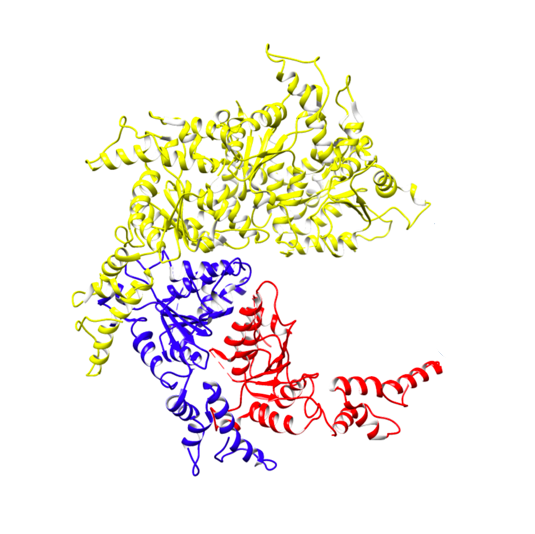Seminarios 2021
Programa
- 7 de Abril – COVID
- Structure-based drug discovery against the SARS-CoV-2 macrodomain from fragments to leads. Stefan Gahbauer. Postdoctoral Researcher. University of California San Francisco.
Artículo relacionado: 1.
- In situ structural analysis of SARS-CoV-2 spike reveals flexibility mediated by three hinges. Mateusz Sikora. Postdoctoral Researcher. Max Planck Institute of Biophysics, Frankfurt, Germany.
Artículo relacionado: 1.
- 16 de Junio - Industria
- The use of virtual reality in pre-clinical drug discovery programs. Wilian Cortopassi. Novartis Institute for Biomedical Research.
Video relacionado: 1.
Artículos relacionados: 1 y 2.
- Use of molecular dynamics simulations and sequence analysis in the field of enzyme engineering in industry. Leonardo De Maria. AstraZeneca, Suecia.
Video relacionado: 1.
Artículos relacionados: 1 y 2.
- Introduction to the Computational Materials Science Program at the Center for Innovation on New Energies. Juarez Da Silva. University of Sao Paulo. Center for Innovation on New Energies. Brazil.
- 21 de Julio – Machine Learning
- Machine learning coarse-grained force fields. Brooke Husic. Princeton University.
Artículos relacionados: 1
- Integrated methods for the development of peptide and protein therapeutics. Philip Kim. University of Toronto.
Artículos relacionados: 1 y 2.
- 25 de Agosto – Membranas
- Multi-scale modeling of membrane pores. Martín Vögele. Stanford University.
- Computational approaches to study protein-protein interactions regulating the expression and function of membrane proteins. Ariela Vergara. University of Talca, Chile.
- 27 de Octubre – GROMACS
- The genesis of GROMACS and the future of molecular dynamics. Erik Lindahl. Professor of Biophysics at the Department of Biochemistry & Biophysics. Science for Life Laboratory, Stockholm University.
- 01 de Diciembre – Trabajos hechos en Colombia 2021
- MCardiolipin prevents pore formation in bacterial membrane models. Cristian Rocha. Universidad de Antioquia.
- Relative Group Contribution (RGC) Model as an Innovative Strategy. Andrés Felipe Vásquez Jiménez. Universidad de los Andes.
- Dorian Acevedo. Universidad de los Andes.
